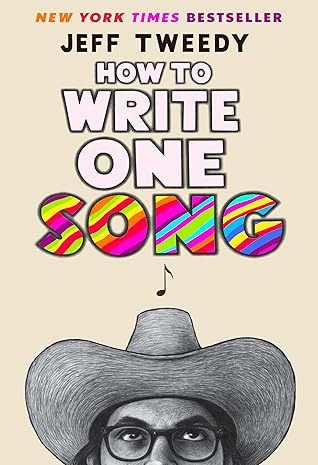More on this book
Community
Kindle Notes & Highlights
What I’ve found after writing reams of songs in almost every conceivable manner is that I tend to WANT to sing the songs that were worked on this way more than those from other styles of writing.
Don’t we want more than anything to make something that reflects who we are and how we feel honestly enough that someone else might feel seen or acknowledged, and less alone?
Let’s say you’re stuck trying to finish a song. Do you have a favorite part? A favorite lyric? Start there.
When I come across a good line, I almost always put it first.
All of those lines, to me, carried enough imagery and intrigue to propel me into the rest of the song. So, lose the restraint. Songs aren’t generally paced like novels or short stories, even. They’re often more like bumper stickers. If you have a lyric that feels great to sing and grabs your attention, see what happens when you open up with that line.
Put away whatever you’re working on that you find frustrating. Don’t think about it. Leave it alone. Maybe take one last crack at it before you go to bed to see if your brain can untie some of the knots while you’re asleep. Which, again, is something I recommend trying with any creative work you’re involved in—stuck or not.
A good number of the unfinished songs I have lying around are songs that I’ve put away in frustration, and it’s been incredible to me how often they seem to work themselves out when you avert your expectant gaze.
One of the ways anyone can get better at songwriting is by learning to accept what is given, even if it feels like it came from nowhere.
Sometimes you’re stuck because you’re anxious about losing something you love. Maybe you were sailing along working on a song and you kind of fell in love with it. And then you felt vulnerable because “What if it’s not really good?” Or “What if I can’t realize the full potential of this song?” Isn’t that what someone in the world of psychology would call an “unhealthy attachment”?
Just let a song be itself.
Through your own grit and effort, you will learn where you’re likely to trap yourself in dead ends, and you’ll be one more song wiser to the idea that songs all happen the same way.
Anyway, all future procrastination will be a tiny bit less persuasive in the wake of one hard-won song, right?
But I will argue that how you judge the art you make is nowhere near as important as the act of creation itself.
I want to stress again that it’s necessary to learn how to be OK with being bad at what you do—sound bad, write a bad song, suck at playing the guitar—or you’ll never get to “good.” And you have to keep being OK with going through “bad” to get to “good.”
So you might as well try to find the joy in creating even a bad song or a bad poem or a bad painting or whatever art you need to make.
We lose a lot as we grow older, and that apparatus becomes more efficient and adept
Imaginations run wild when you get down on the floor to color with some toddlers. Talk about inspiring! Ask a little kid to tell you about a painting they’re working on. It’s a miraculous thing. And I don’t think it’s unreasonable to aspire
Close your eyes and imagine the color blue or a sound. How did you do that? You created that.


